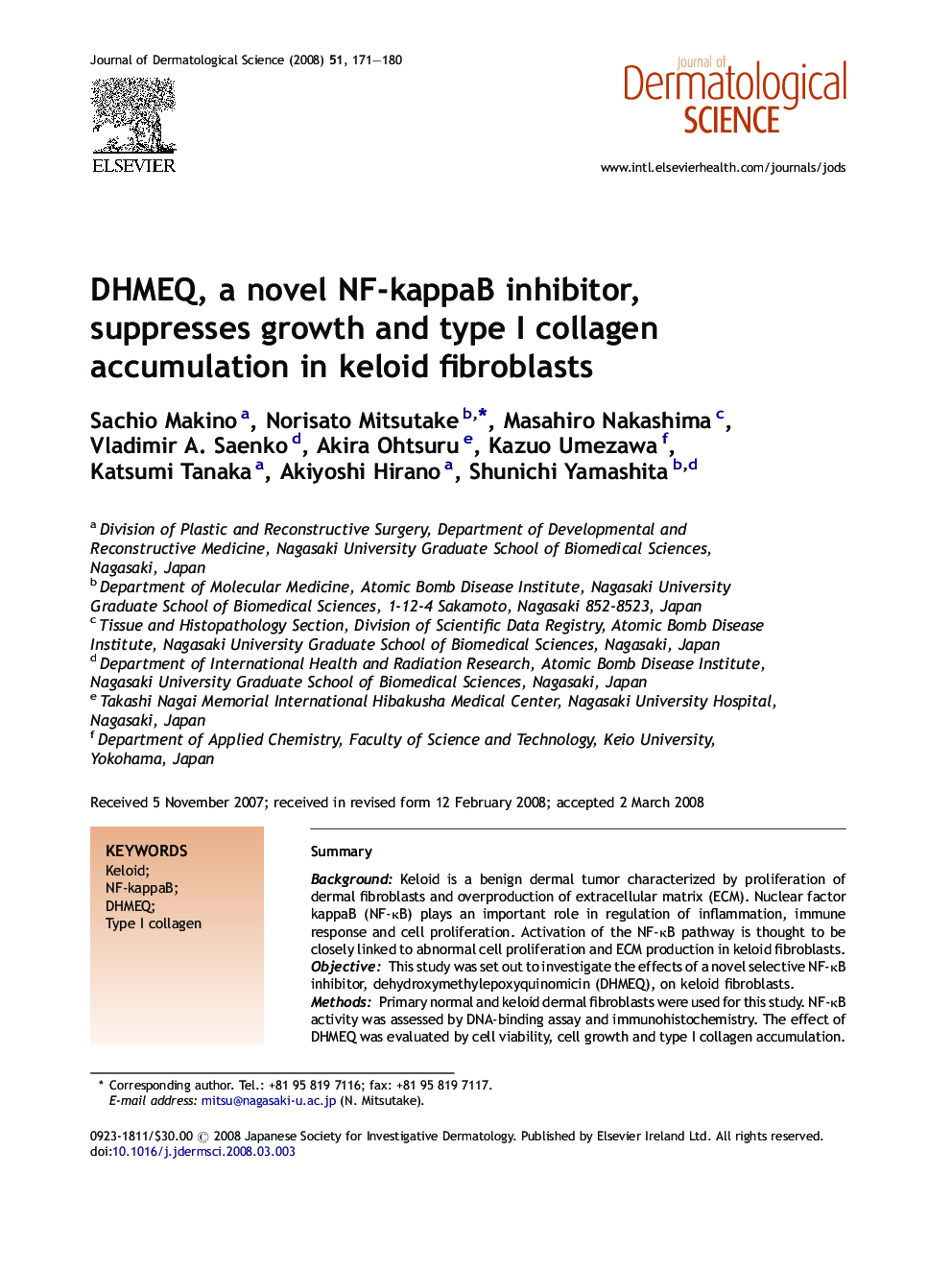| Article ID | Journal | Published Year | Pages | File Type |
|---|---|---|---|---|
| 3213957 | Journal of Dermatological Science | 2008 | 10 Pages |
SummaryBackgroundKeloid is a benign dermal tumor characterized by proliferation of dermal fibroblasts and overproduction of extracellular matrix (ECM). Nuclear factor kappaB (NF-κB) plays an important role in regulation of inflammation, immune response and cell proliferation. Activation of the NF-κB pathway is thought to be closely linked to abnormal cell proliferation and ECM production in keloid fibroblasts.ObjectiveThis study was set out to investigate the effects of a novel selective NF-κB inhibitor, dehydroxymethylepoxyquinomicin (DHMEQ), on keloid fibroblasts.MethodsPrimary normal and keloid dermal fibroblasts were used for this study. NF-κB activity was assessed by DNA-binding assay and immunohistochemistry. The effect of DHMEQ was evaluated by cell viability, cell growth and type I collagen accumulation.ResultsBasal NF-κB activity was constitutively elevated in keloid fibroblasts, indicating that this pathway is involved in keloid pathogenesis. DHMEQ markedly reduced cell proliferation and type I collagen accumulation in keloid fibroblasts.ConclusionThe inhibition of NF-κB by DHMEQ may be an attractive therapeutic approach for keloids.
